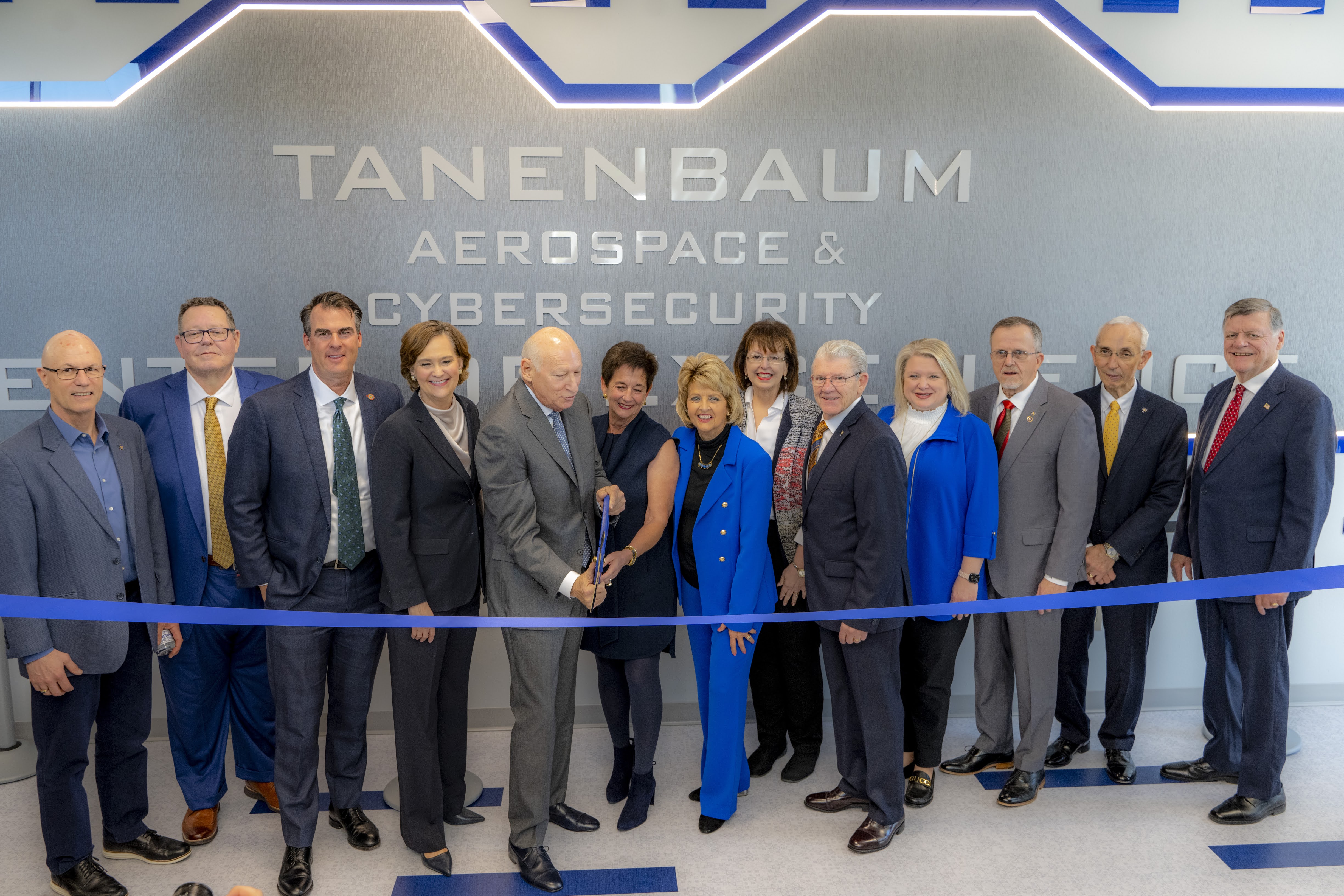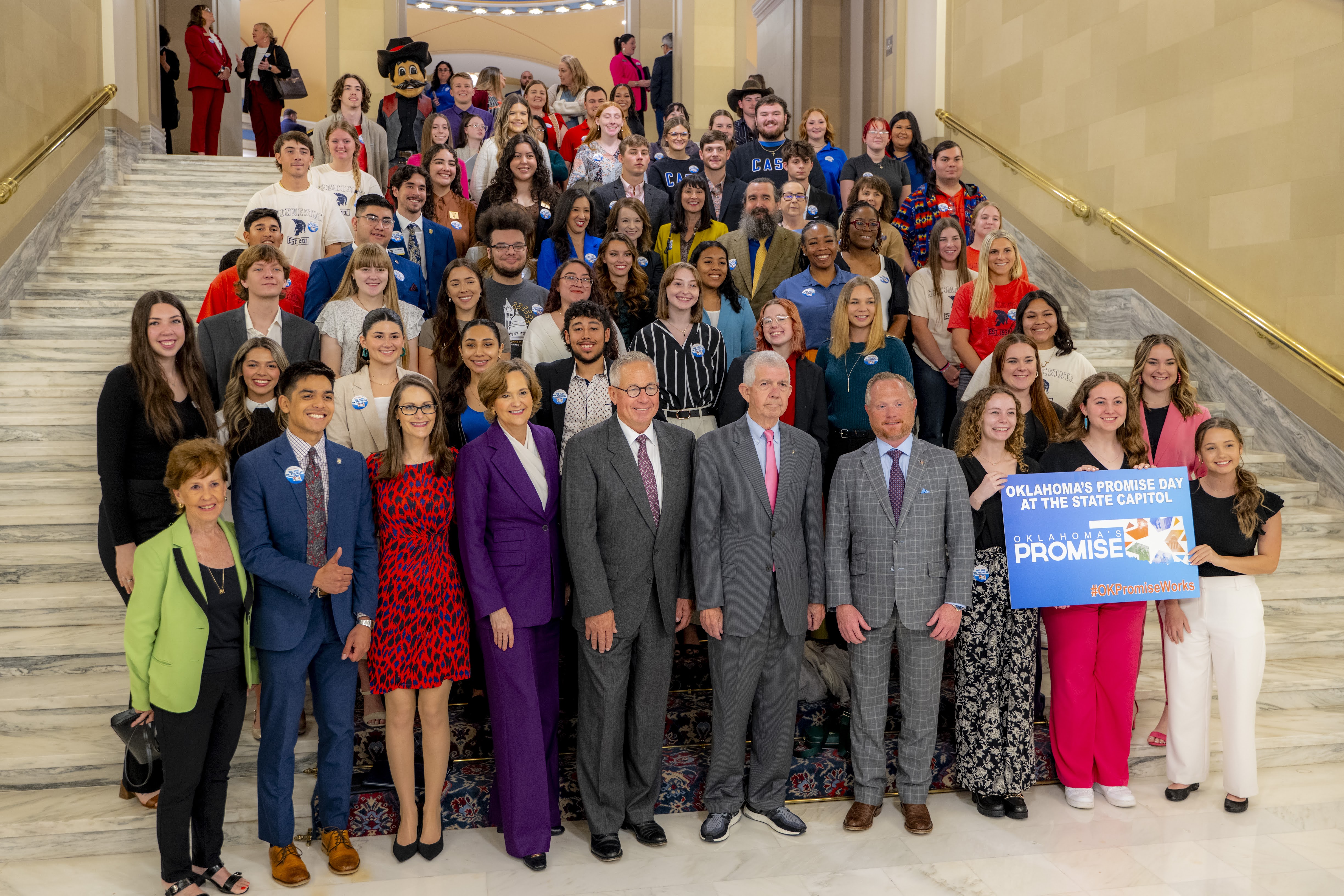Losginbyhl, Juanita
Born: 1924
Date Interviewed: Spring 2003
Interviewer: Keisha Graham
Topic: Rosie the Riveter experience
Q: When and where were you born?
A: Altus, Oklahoma, in 1924.
Q: Where did you attend school and for how long?
A: I went to school at several schools because it was back during the Depression and we did a lot of moving about.
Q: Do you remember what high school you graduated from?
A: I didn’t graduate from high school. I finished the 11th [grade]. That was in Oklahoma City.
Q: Do you remember much about your middle school, or K through 8?
A: Well, I remember a little bit. When we first moved to Oklahoma City, we lived right across the street from a school. I guess we went there, Wilma and I. . .
Q: Do you remember when you moved to Oklahoma City?
A: 1936. I remember because it must have been the hottest summer I ever lived in my life. People did not have anything like air conditioners. In fact, where we lived, after we first got to Oklahoma City, we took our mattresses off the bed and put them outside where we could be cool because it was terrible.
Q: What were your interests and hobbies as a young woman?
A: You know I can’t remember very much of hobbies. I came from a large family. My mother had seven children, I was just busy helping mother raise the family.
Q: Did you guys ever go camping or go the lake or on vacation?
A: No, but when I say that, I know we maybe went one time.
Q: Any sports that you played growing up?
A: No.
Q: When did you begin to get a sense that the US was headed toward war?
A: Most of all, it was at Pearl Harbor, because I remember that real well.
Q: Do you remember what old you were when you first realized that war was going to begin?
A: I was probably about 17 or 18.
Q: What was your reaction?
A: Well, at first it was really an exciting thing. People talked about it a lot. I don’t know why I got all that interested in it, but anyhow, when you’re around people and they talk about something as they did that. . . this puts me in mind that I realized that our country needed help because of so many things that we were doing to save on utilities and things like that. So I went to the employment office to see if there was something out there I could do. They give you tests and you have all these papers to fill out. I took these tests to find out what I could do. I found out that my [aptitude] was more mechanical than it was anything. There is a place in Oklahoma City called the Armory, and that’s where at that time that the soldiers were going out there and getting training. So, anyhow, that’s where they had me go. I really liked it. It was enjoyable. And I worked right with the soldiers, so I didn’t have to worry about getting acquainted or what to do, it was just quite interesting. I can remember that there would be a good-sized table where four people could work comfortably together kind of elbow to elbow. We could talk, and we jokingly said “if you keep moving about, they’ll think you’re working,” but, of course, we were teasing!
Then Tinker Field was a relatively small place and about a year ago I went out there on a tour and it was nothing like it was back then. So I had to do a lot of studying and I will say this, that I was good at what I did. Now, I have some of the material that I had then and I think, “Oh, surely not!” I was classed as a mechanic’s helper, so I had to learn to drill the holes, rivet holes. I worked on the cowling – the cover that goes around an airplane engine. That’s what I worked at mostly. Sometimes, I would go outside, but usually it was things I could do inside. For instance, the plane would come in and maybe it had been shot at and it had holes in it, so we had to patch that hole. We had to go to different places in the building and order stuff that we were going to use ourselves. It was just quite enjoyable.
Q: What year did you start working out there?
A: 1943.
Q: Did you retire from Tinker?
A: No, my husband was drafted.
Q: What year was that?
A: That was in ’43. He would be sent to different places, and I would go wherever he went. I went on the train, and even the thing of getting where you were going, like getting on the train – I would love to go on the train! I made the trip between here and Tennessee, because that’s where we changed trains, about 12 times. But things were so different then, like I’d be going somewhere and I’d never been anywhere in my life, as you can tell by the fact that I was born in Oklahoma and grew up there. They were called troop trains because that’s all there was on there was soldiers and their wives, or just soldiers. Even that was enjoyable because the soldiers – they were kids, just like I was a kid – and we’d get on the train and go somewhere, and I knew where my husband was going. You talk about a one-horse town! We met a lot of people and that was enjoyable. There was one person from that time to this day, we write to each other. Just this one. I guess because we were both from Oklahoma and that gave us something in common.
Q: What was the atmosphere like and the mood of people in the town in which you lived?
A: It was good. Oklahoma City was the last time that we moved. Up until that time we moved quite frequently. The people were nice, easy to get along with for the most part. There were other soldier’s wives that were traveling. There were very few places where people could live during those years. In fact, one lady had made a chicken house, but she did not use it. My husband and I lived in that chicken house. Now Wilma couldn’t find a place to live either, and her husband was stationed in Texas. She just went everywhere trying to find just one room. She got a job at the jail cleaning, sweeping, and cooking – which she couldn’t do! – and she got to stay there.
Q: Were you married at the time? Or seeing anyone on a regular basis?
A: I was married.
Q: At what age did you marry your husband?
A: About 18 or 19.
Q: Did the two of you discuss how the war might affect your relationship?
A: We may not have discussed it, but it really did affect it.
Q: Any particular events that really affected you? Any certain thing?
A: When we came home it was hard to fit in because people had lived all their lives wherever they were and here we were just coming to town and having to find a place to live, so that was different.
Q: When did the government announce that the women were going to be brought into the defense industry?
A: I don’t remember that they ever said that. I imagine it was about that period of time there, because a lot of things were happening. I remember going to downtown Oklahoma City and it was the 45th Infantry headquarters. I wanted to go down and hear them play – they had a program – so you knew that things were getting serious. I was always a person that was patriotic, just like I am today – I’ve had the TV on just constantly with this [war in Iraq]. I find it really interesting, and needless to say, during the last world war, you didn’t know what was going on until someone told you that somebody got killed. If you had a soldier in your family or in your home, you put a star in the window to signify to people that there was a soldier who lived there. It must have just been the parents that did that because I can’t remember doing that myself.
Q: When did you decide to become a so-called “Rosie the Riveter,” or work in the war effort?
A: You know, it is strange to ask a question like that, because it isn’t like all of a sudden out of the blue you decide. It was just that I wanted a job, went out there, and took several weeks of training, and it was only later that I learned that I was a Rosie the Riveter!
Q: How did the people close to you react to your decision?
A: Some – because we were all pretty young – wanted me to finish school, which I wish I had of, but everything was so torn up with my husband going into the service and I’m telling you the financial part of it, even back then, there has always been that situation.
Q: Did you know a lot of other women in your area that were also going to become involved in defense industry work?
A: Yes.
Q: Did you become friends with some of those women? Or just co-workers?
A: The fact that we were all there to do the same thing. Every once in a while when we’d move to a certain place we would find people that we’d already met them at another place.
Q: How many women and their husbands traveled with you and your husband?
A: Of course, he would have already gone wherever they were going to send him. As for the women, sometimes in a situation like that, you don’t really get that acquainted with other women. A lot of things happened back there. . .well, this friend that I write to, we just kind of talk about what we’re doing. We can remember, like people say, the “good old days.” When I was going on the train to different places, the soldiers, they knew you couldn’t get on that train, and they would just come up beside you and lock their arm in yours and put you on the train. And then they’d be gone. So that was interesting.
Q: How did the process unfold as you went from civilian to defense industry worker?
A: Well, you just had a job to do and did that. Some liked what they were doing; there were others who didn’t. There was a few men that were not very good – ugly [mean], you know, even out at Tinker Field there was people like that. There’s people like that everywhere.
Q: What kind of job or jobs did you work? What were you responsible for?
A: I worked on big planes. The fact that it was big – I could have done the same thing if it was little, but I shall never forget the enjoyment of being with other people, and especially soldiers, because you never knew where they went from there, and you knew you had to fix something because they’d be going where you’d probably never see them again, and they had to stay together until you got there. I remember one time something we did and I thought I was really smart because I discovered how to do something, but for some reason or other, some of the airplane parts had gotten wet and then they had rusted, and it you had to get that rust out of there. Well, I twisted these little gizmos and I got the idea of wrapping steel wool on the inside of those and it worked.
Q: So did everybody start doing it like that?
A: Well, the ones that were doing the same thing. I mentioned being on the inside, but not very often, like for instance, on a B-17 – a big bomber – they’d need somebody small – then I was small! They needed someone to get inside the plane in a tight spot. I’d drill holes and then patch them up. It was fun!
Q: How many hours per day did you work and how many days per week did you work?
A: I am not positive, but I think it must have been eight hours a day, five days a week.
Q: What kind of pay did you receive?
A: Little, little – no kidding – it was just a few dollars. I don’t know that it was $3.00, probably more like $2.00. Where I had written notes, I tried to figure out what period of time that was – was that a week? Month? But everybody was getting the same thing so it didn’t matter that much.
Q: How long did your employment last?
A: Less than a year. It was because I was going to have hip surgery, which I lived a lot more years after that before I ever had it done.
Q: After Tinker, where did you go and what did you do?
A: I did a few different things. I went to a business school and learned a lot of things. It was still in the machine order because it was machines, mechanical things that I did. Then when I finished taking training for that, about the first job that I took was a job in a clinic. I just had certain things that I did. I guess the last job that I took, which lasted 35 years, was a drug clerk. It was very convenient close to my home and I had children – three boys. One would have been two, one would have been just born, and one seven.
Q: What was the mood of your fellow female workers?
A: It was good.
Q: Was there a sense of camaraderie among the female workers?
A: I think so.
Q: What does that mean?
A: Well, it means good, friends.
Q: Did you make any lifelong friends?
A: Just the one that I write to. I met her in Alabama when we were traveling.
Q: Did the women enjoy the work, or did the work prove too difficult for some of the women?
A: Some people are going to be happy wherever they are and some aren’t – always.
Q: Were the women from every kind of economic, ethnic, racial, and social background?
A: Yes, I think so. At that time, they were pretty prejudice against even black people, but I don’t think you’ll find anybody like that today.
Q: If so, could you please elaborate whether or not all women were treated equal or if some women, because of their background, had a more difficult time than others. Please feel free to expand on anything to do with this?
A: No, not really. There were both men and women that were black, but there weren’t very many.
Q: What was the reaction of the fellow male workers?
A: It was good because they were all soldiers. They actually lived right there at Tinker during that time.
Q: How were you treated by them, as well as by the bosses who were in charge?
A: Really kind.
Q: What was the overall atmosphere at Tinker Air Force Base and the surrounding area?
A: I would say that it was good because people knew they were doing a good thing and wanted to do their share.
Q: When the war started, was it a hard time around there? Was it real emotional or what was the mood of the co-workers as the war went on?
A: Yes, because the people if they had any families, and almost everybody did then, they would talk about that. And if they didn’t have anybody else to talk with, they could always talk to their husband or girlfriend.
Q: So while you were working at Tinker, the war was actually going on and men were coming in and going out and planes were leaving and coming back and you were actually working there as the war was happening?
A: Yes.
Q: It must have been pretty stressful. Was your husband off in the war while you were at Tinker working?
A: At first I wasn’t with him, but he wanted me to go where he went. I guess it was a good thing. What else could I do?
Q: What kinds of memorable occurrences did you witness or experience?
A: Meeting people.
Q: Did you witness or experience anything about the war, maybe like someone come home who had lost a leg or something like that?
A: Well, one time, when I was on a train, they had prisoners of war and they were German prisoners. They just talked like everybody else, you know, joining in the conversation. I remember one time I had to go to the doctor and the only place to go was to the doctor that was there on the base and I remember when I got ready to leave and started down the hall – it looked like a mile long – and I was just in there having a hard time finding where to go. I met this man walking along who looked like a patient and I said “how do you get out of this place?” And then he answered me in German, so . . . [laughter] he didn’t help me! We ran into different situations where we would live . . . sometimes you can just have fun with anybody or anything if you want to. Even though there was just one girl that I still maintain a friendship with, others could have, but I don’t like to write that good. Some people are good writers, some aren’t.
Q: After the war, was there any kind of pressure from the government and the media for women to leave the workplace and return to homes so that male veterans could once again have access to jobs?
A: You know, while that is true, I don’t remember anything like that.
Q: When the war was over, did you quit working?
A: I had already quit working because I followed him around. Then after that I worked for 35 years in a pharmacy in a clinic.
Q: How do you think the war years impacted the lives of women in this country?
A: I’m sure that there were a lot that got courage, maybe, to do something that they never had done before, just like I did. Now that I’m older and I look back on some of those things, I think, “Oh, my goodness, how did I do that?” Just like working in there with all those men, but they were nicer than some men today. By the way, I did divorce, then I remarried and he died about a year ago. He had girls, and I had boys, but they were grown.
Q: Your divorce was after the war, or how long after?
A: Yes.
Q: So he made it through the war?
A: Yes, in fact, he was stationed in Japan. I didn’t want to go to Japan. Nobody asked me to, either [laugher].
[Mrs. Losginbyhl began talking about her experiences during the Depression, prompted by the interviewer to talk about “the good old days.”] During the Depression before we moved to town, during the Dust Bowl, we lived where the dust was and I remember the wind was blowing, and the sky was just black. Our mother told us to gather in the eggs – we just thought we were having a ball! You couldn’t eat without covering up your plate – maybe turn the plate upside down because there was so much grit and sand on it. We had – like a lot of houses – big cracks in the walls and it maybe would snow and the morning when you woke up you could see where ice had come into your house. I started a number of years ago writing things down as I thought about them. I’m the oldest one, and these things will be lost if somebody doesn’t tell it. I’m working on mine.
I am a member of the Daughters of the American Revolution through my mother’s family. We had a blood relative who fought at Ft. Ticonderoga.
Q: What impact did the working women of World War II and their experiences have on future generations of American women?
A: One thing, it helped to reason things out – think more seriously.
Q: Did the skills you learned during the war serve you in any kind of way in the subsequent years after the war?
A: Probably helped to be a better person, be kind. When I took the job there in the clinic, one of the jobs that I had was working on people that didn’t pay their bills, and it was very important to keep customer’s happy. I took a Dale Carnegie course to learn how to deal with this difficult situation. It was very interesting.
Q: What things stand out most in regard to your experience as a Rosie the Riveter or any of the other kinds of work you did during World War II?
A: Working with the people. Putting myself out to maybe do some things that I didn’t want to do. One thing was doing something that I could do myself.
Q: What kind of lessons did you learn?
A: A person could say a lot of things. . . I remember seeing a man who didn’t have any legs out at Tinker Field. Everyday he would sing as he would come and as he would go. And he had a platform of a thing that had wheels underneath it – such devotion that he would work at something that hard just to have food on his table. That took a lot of courage.
Q: If you would like to discuss or expand on anything at this time, please feel free to do so. Would you like to add anything?
A: It had kind of a romance to it, in a way, working on those planes. In fact, there have been a few times since we have lived here that . . . Wiley Post Airport is not very far from here and every few years, more often now, I think, I have had the privilege of getting in one of those big planes and crawling all around in it.



